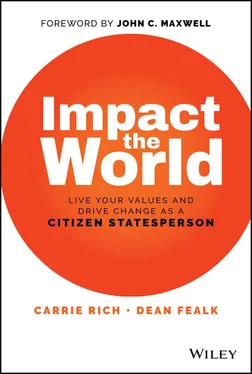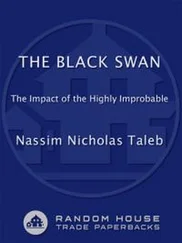Anne's organization also offers direct economic benefits. It provides training and apprenticeship for women and youth interested in careers in construction or real estate, and supports a local market where women, masons, apprentices, businesses, and clients can operate. According to Anne, building one home creates 13 direct jobs—and so far, Smart Havens Africa has constructed 80 homes for women and low‐income families.
Finally, Smart Homes Africa promotes added social benefits by being thoughtful about where they construct houses and what resources are available to people nearby. By building homes in areas where most homes are owned by wealthy landowners, the company ensures residents will have access to good roads, power, water, health centers, and educational opportunities.
Anne didn't just find a novel way to increase quality housing in Uganda; she found a way to increase quality housing while also protecting the environment, creating jobs, and ensuring access to important services to generate multidimensional impact.
Cultivating a multifaceted viewpoint is something that you can do within your organization, within your interest area, and across industries. Just because a challenge doesn't fall within your experiential or academic expertise doesn't mean you can't make a difference; instead, use your diverse network with diverse perspectives to draw on the right support and expertise.
Dean has an instructive story here.
California boasts the fifth largest economy in the world, occupying a space between Germany and the United Kingdom. In areas from technology to the film industry, California's activity and leadership set the tone for other countries. And yet, historically, there has been no statewide governmental office in California dedicated to international policy—no secretary of foreign affairs, or minister of global action. To Dean, this felt like an oversight, a missed opportunity for collective problem‐solving.
So he decided that citizen statespeople like himself should help take up the mantle of this role.
Of course, it wasn't that simple. He had to connect with the right people, engage in the right subject matter, and educate himself about the issues that mattered. But ultimately, he was able to take responsibility on himself and act on foreign policy not because he was an expert in the field, but because, as a citizen‐statesperson, he was well suited to do the work. In the course of his efforts, he was made an honorary citizen of the German economy—a recognition of his tireless efforts to promote a stronger transatlantic relationship between Germany and California. He was able to organize events with the NATO secretary general to discuss the role of the alliance and the importance of innovation and California's tech sector in defending democratic values. He represented the state of California in trade and investment missions around the world. And he was able to host dialogues and conferences to connect government leaders from Asia, Europe, and South America with private‐sector actors in Silicon Valley to build accessible conversations around issues that impact businesses and communities around the world.
Did the experience fit perfectly within Dean's area of expertise? No. Did he start with all the right information, and come from the right sector? Nope. But after years of cross‐cutting experience and after developing relationships with other problem‐solvers across the globe, he was able to draw on allies, connect partners, and cultivate supporters to help drive effective change.
That's citizen statespersonship.
Dean's example shows how a dedicated citizen statesperson can create change by considering what's missing in a given equation and adjusting one's own actions to fit the moment. But sometimes, opportunities for citizen statespersonship can arrive in a flash of inspiration, even when you're not expecting it.
Annie Ryu grew up in Minnesota and was pre‐med at Harvard University when she traveled to India for the first time at 20 years old. At the time, her goal was to implement a maternal and child healthcare program she had developed with her brother. But that trip changed her plans, and altered the trajectory of her life, in a very unexpected way.
While she was traveling in India, she tasted a jackfruit—a tropical tree fruit that Annie compared to an “Indian porcupine.” It was the best thing she had ever eaten—like a combination of mango, pineapple, and banana—but also nutritionally dense, high in fiber, low in calories, and with a meaty texture that can take on many flavors. It is also soy, gluten, nut, and cholesterol free, making it an excellent food source for health‐conscious individuals or people with allergies. Annie learned that, although jackfruit is abundant in India, there is no international supply chain, and so most of the huge, green fruit grown in trees goes to waste.
The experience made a transformative impact on Annie's focus. Upon returning to school, she researched the U.S. market for plant‐based food, met food experts, and traveled to meet with farmers in India. She saw an opportunity to transform thousands of farmers' lives for the better. And she developed a plan to help farmers in India while developing a market for jackfruit in the United States.
Today, as the founder and CEO of the Jackfruit Company in Boulder, Colorado, Annie is one of the most successful new entrepreneurs in the consumer food business. The company creates easy‐to‐prepare vegetarian dishes and features jackfruit as the primary ingredient. It works with more than 1,000 farming families in India that supply jackfruit to more than 6,000 retailers in the United States, and has become the largest jackfruit buyer in the world.
Annie didn't go to India expecting to join the food business. She certainly didn't anticipate that she would make a career out of agriculture in India, or that her work would support and sustain the livelihood of farmers in South Asia. But Annie did recognize an opportunity for citizen statespersonship when she saw it, and used that inspiration to change the world.
Making Connections in Unfamiliar Places
It's one thing to recognize the importance of connecting with disparate cultures and ideologies—it's another thing entirely to achieve it. Whether you are engaging with marginalized populations for a service project or connecting with affluent groups to discuss fundraising for an important issue, you will need to find ways to create comfort and connections with people different from you. Luckily, there are steps you can take, and principles you can bear in mind, to achieve exactly that.
First, begin by learning about the norms of the community. Much of this research can begin online, by reading about cultures and understanding the customs you might encounter. Consider looking at pictures to gain a visual sense of what you might see and experience. It's also important to explore human resources where available. Who do you know from the community who would give you a sense of what to expect? Who could you speak with to answer your questions, or give you suggestions for how to present yourself? If you don't ask, you don't know—and knowing can pay real dividends. When Carrie was spending time in places as disparate as China, India, and Nigeria, she did her homework online beforehand; she also asked individuals from each place how to show respect in the cultures she would be visiting. In China, she used two hands to receive business cards. In India, she bowed to people who were older than she was and used local names in the local language. In Nigeria, she was prepared for local customs around eating and drinking. Because she had spent time learning about these customs, she wasn't surprised by them, and they became a point of connection rather than division—allowing her to focus on more substantive matters.
Читать дальше












